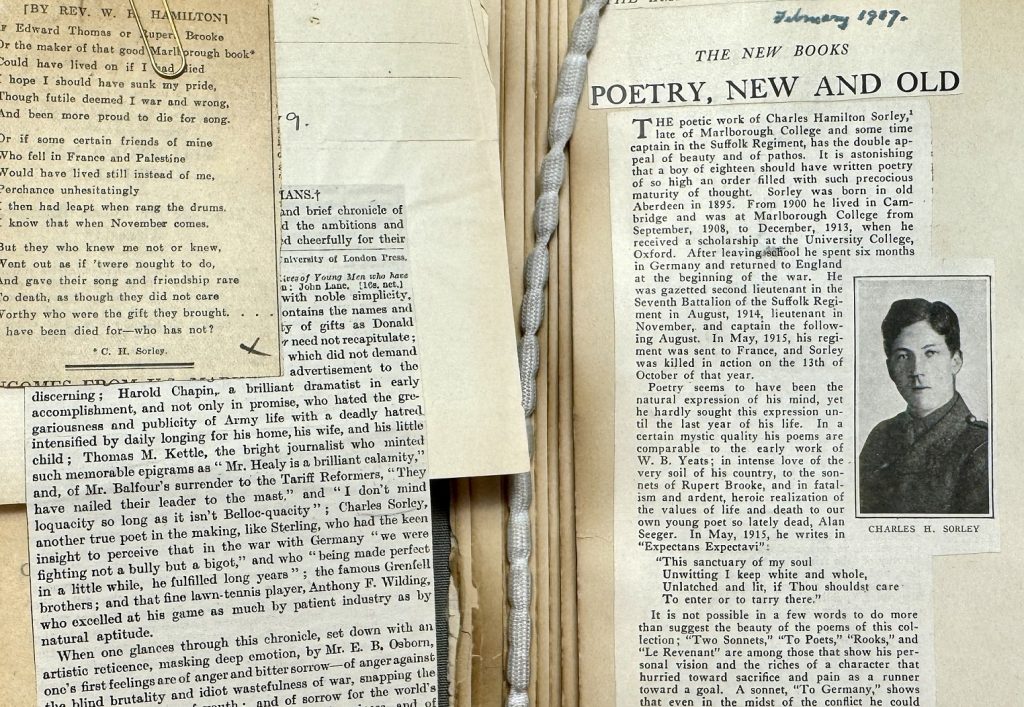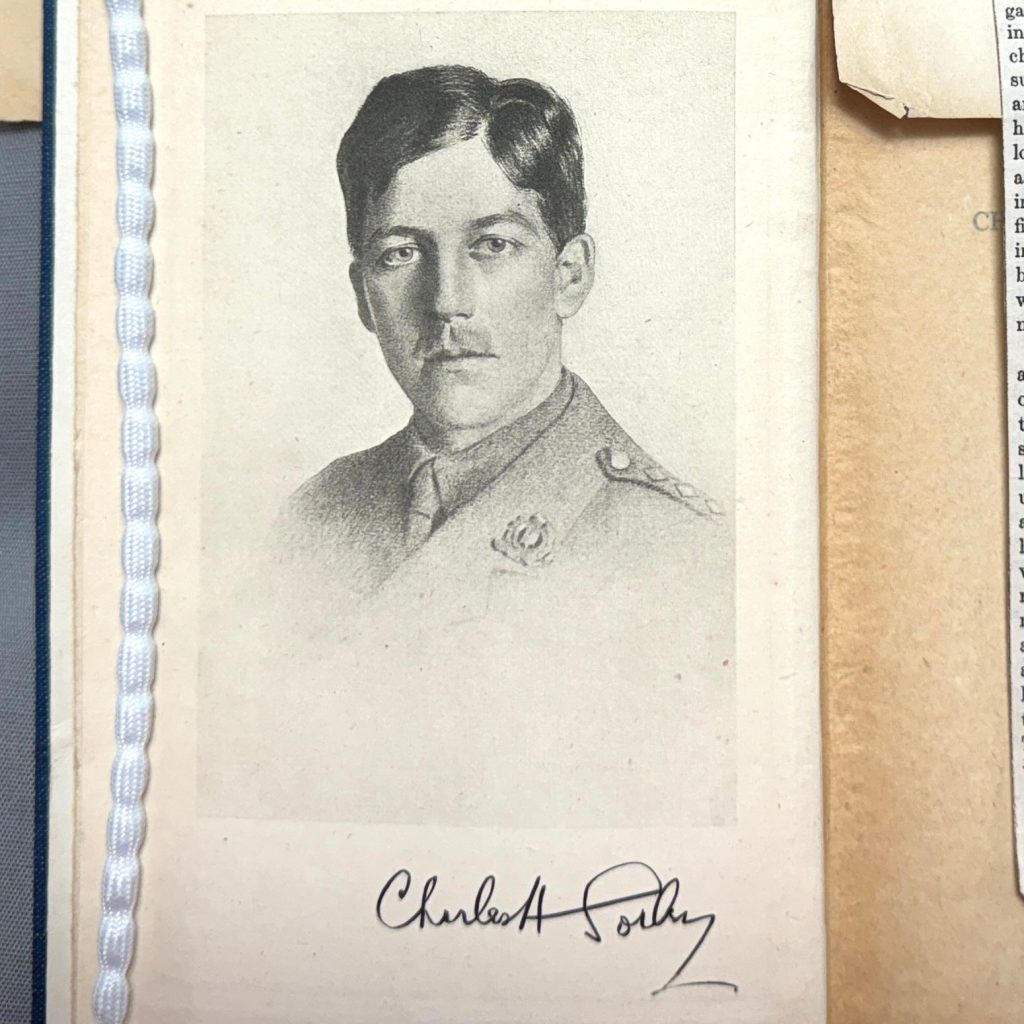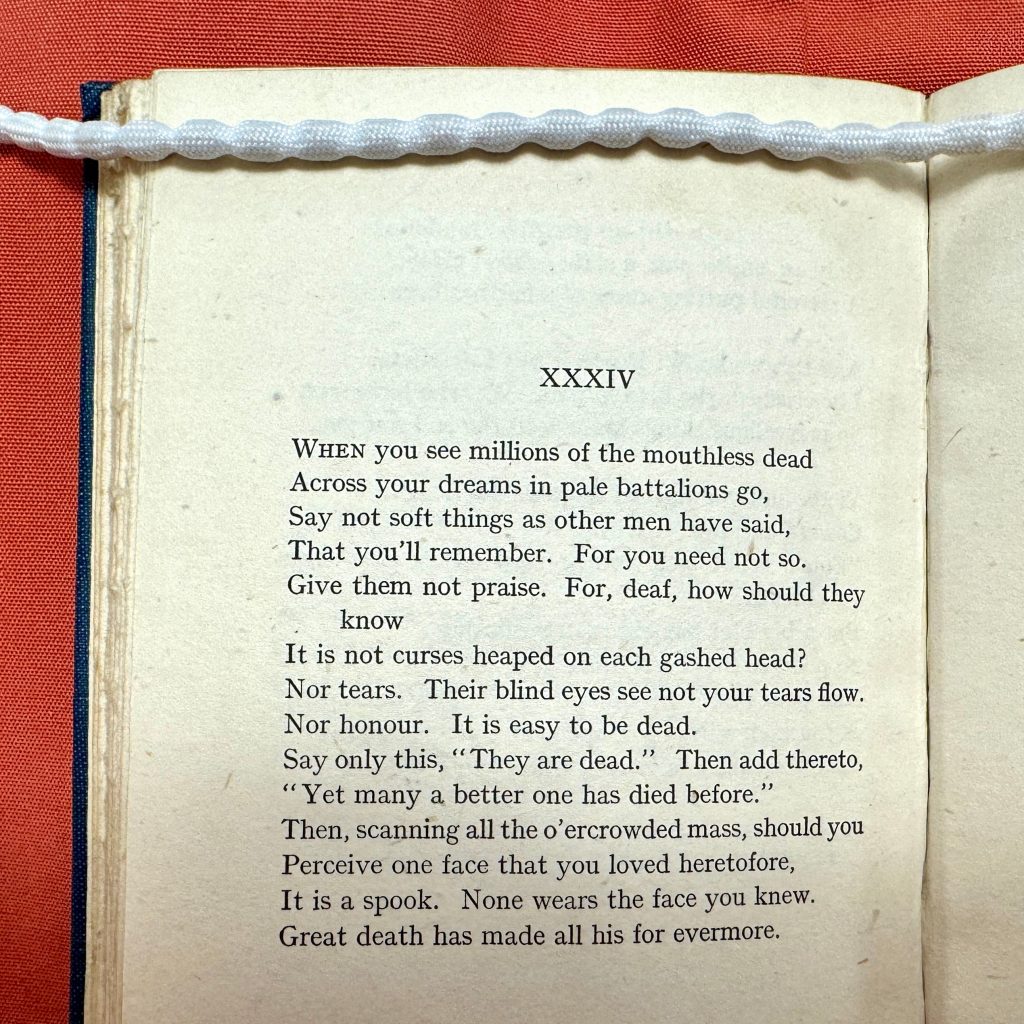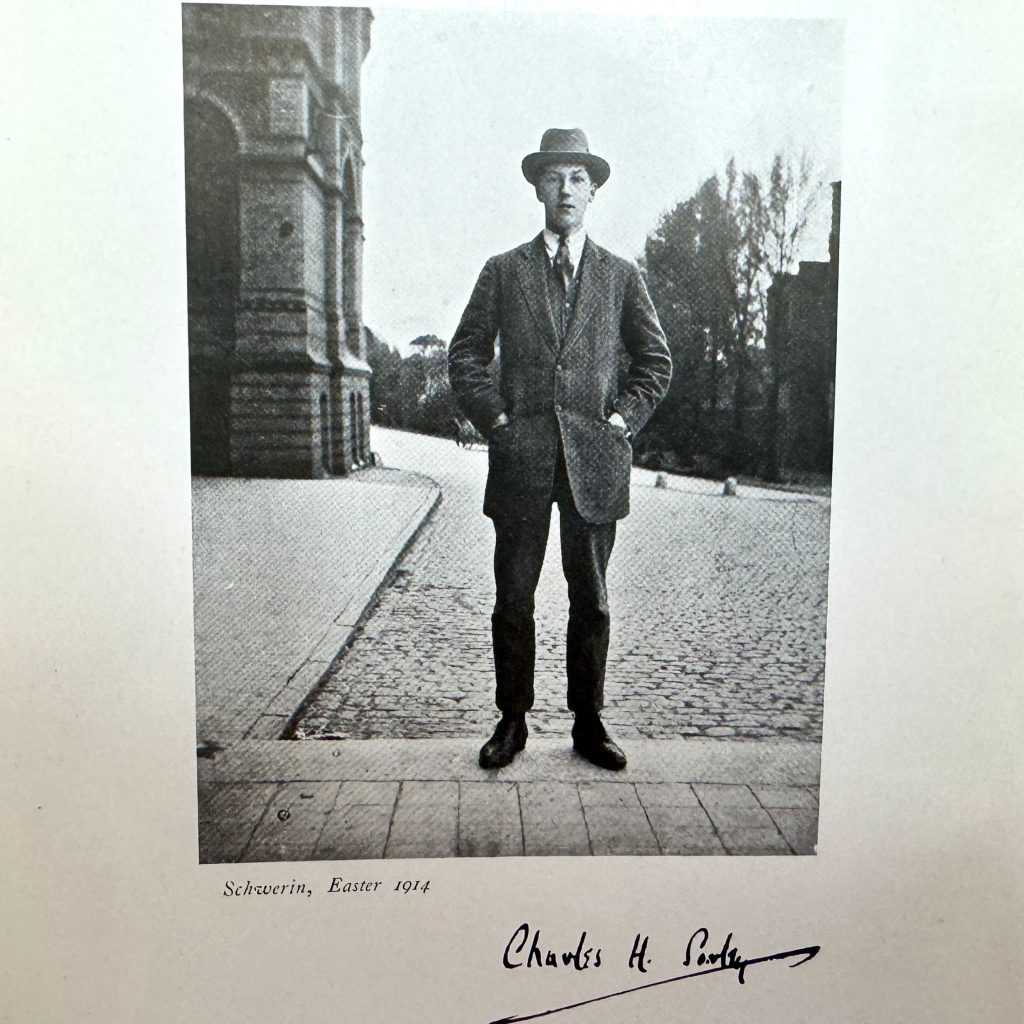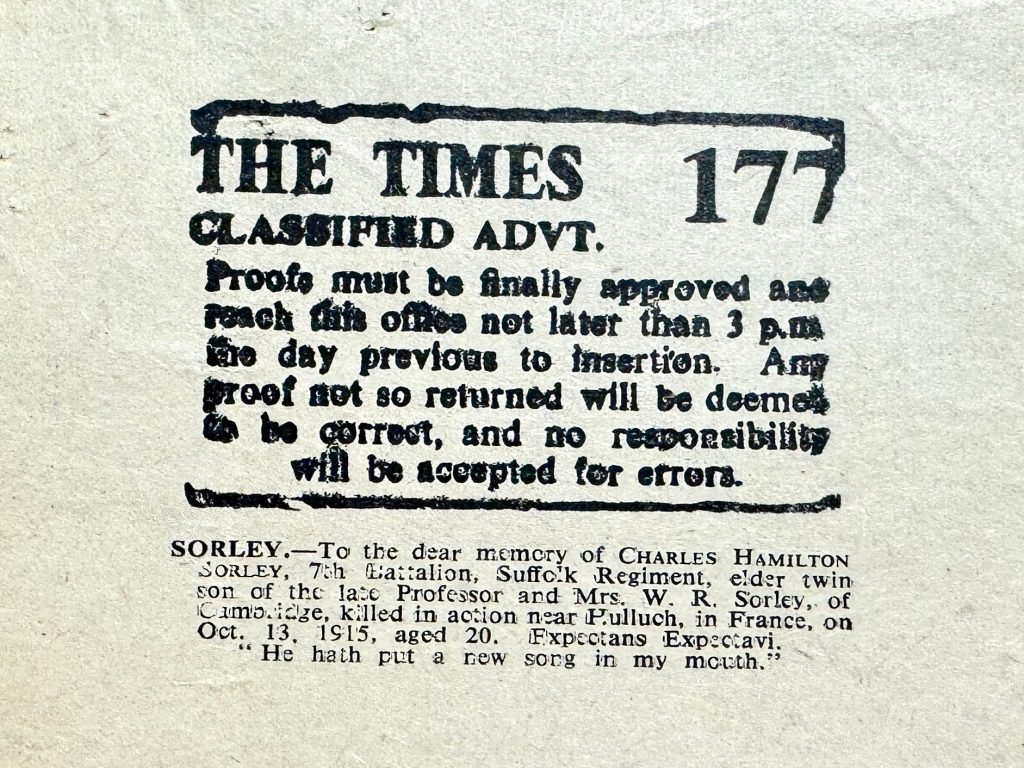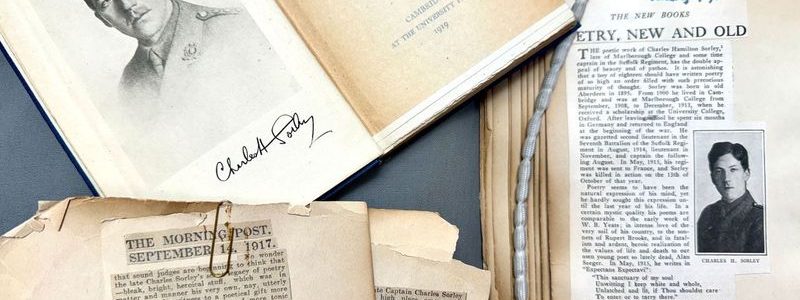
Charles Hamilton Sorley remembered
A guest post by Jonathan Spain.
The Department of Archives and Modern Manuscripts has recently catalogued a small archive relating to the First World War poet Charles Hamilton Sorley (1895–1915), which takes the form of a memorial scrapbook and a file of related papers.
Charles Sorley was born at Old Aberdeen, the son of William Ritchie Sorley, subsequently Fellow of King’s College, Cambridge, and Knightbridge Professor of Moral Philosophy, and his wife Janetta Colquhoun Smith. Charles was educated at King’s College Choir School and was at Marlborough College between 1908 and 1913. There he wrote and published poetry in The Marlburian. Having obtained a scholarship to Oxford in 1913, he spent six months in Germany just before the outbreak of the First World War. On the outbreak of hostilities he obtained a commission in the Suffolk Regiment, and arrived in France in May 1915. His experiences at the Front led him to take up writing poetry again. He was killed in the Battle of Loos on 13 October, aged 20. Sorley was commemorated along with Rupert Brooke and other fallen members of King’s College and Choir School in a memorial service in the college chapel in November 1918.
Following his death, William and Janetta Sorley arranged for the publication of a collection of their son’s poems, Marlborough and other Poems, by Cambridge University Press in 1916. It included a poem found in his kit-bag after his death, the now much-anthologised sonnet ‘When you see millions of the mouthless dead…’. The book was a critical success, with five reprintings in the first year and further editions thereafter. As well as war poems, the book included pre-war poetry published in The Marlburian; poems describing cross-country running in the driving rain across Marlborough Downs led Robert Graves to coin the phrase ‘Sorley weather’.
Charles’s parents also privately printed a limited edition of his letters, subsequently published by CUP in 1919. In one of the letters Charles expressed criticism of Brooke’s sentimental patriotism, taking a more pragmatic hard-headed view of the soldier’s duty in wartime, expressed in his poetry. He can therefore be seen as a bridge towards the more caustic views of later war poets such as Wilfred Owen and Siegfried Sassoon, who had more experience by then of life in the trenches. Some of Charles’s war poems were included in E. B. Osborn’s anthology The Muse in Arms, publishedin 1917, and his life was commemorated by Osborn in The New Elizabethans in 1919.
Public interest in Charles’s work stirred his parents to collect review articles, and these, together with letters of condolence and appreciation of his work received from friends, academic colleagues working in the field of English literature, and others, are preserved in the bound memorial. There is an interesting set of letters from Osborn relating to the choice of Charles’s poetry for The Muse in Arms. Charles’s time in Germany had given him a nuanced view of the country and its people, expressed in his letters, and this led to an interesting correspondence in 1917 between Professor Sorley and a German émigré family, the Wertheimers, on the need for greater understanding despite the ongoing hostilities.
The compilation of review articles for the memorial continued well into the 1920s, and Janetta Sorley collected material referring to her son as late as the 1940s. The scrapbook and the accompanying documents were held in the Sorley family until they were donated to the Library by Charles’s niece Ursula Bickersteth. The archive is available for consultation in the Manuscripts Reading Room, with the reference MS Add.10156. The catalogue description is available online.

